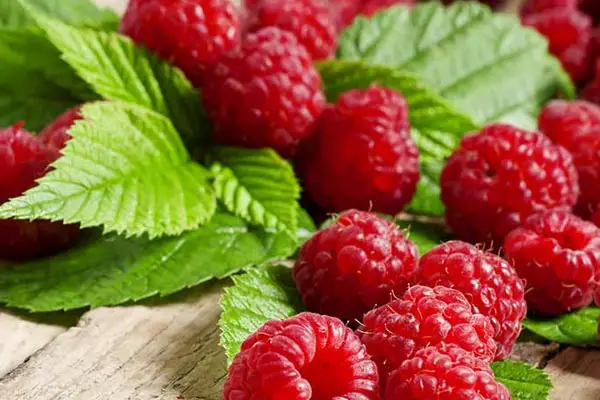Can Dogs Eat Raspberries? Dos and Don’ts!
Raspberries are a tasty and nourishing fruit enjoyed by many people. But what about our furry friends? Can dogs eat raspberries? The answer is yes, but it’s essential to know how to feed them to your dog safely.
As with any food, it’s important to remember that dogs need a balanced diet. While raspberries can provide significant health benefits, they should be used in moderation.
Raspberries have many antioxidants that can improve older dogs’ joint pain and give them other health benefits.
Raspberries are packed with antioxidants, which can ease joint pain in senior dogs and provide other health benefits.
Key Takeaways
- In moderation, raspberries can be safely consumed by dogs.
- Dogs need a balanced diet that includes fruits and vegetables.
- Other dog-friendly fruits include apples, bananas, and blueberries.
Can Dogs Eat Raspberries?
Raspberries are a tasty and nutritious fruit that many people enjoy. But can dogs eat raspberries? The answer is yes; dogs can eat raspberries. Raspberries are safe and healthy for dogs to consume in moderation.
Raspberries are packed with essential vitamins and minerals to benefit your furry friend. They are high in fiber, aiding digestion and promoting a healthy bowel movement.
Furthermore, the antioxidants present in raspberries can aid in safeguarding your dog’s cells against damage inflicted by free radicals.
However, it’s important to note that dogs should only consume raspberries in moderation. Although raspberries are low in sugar and calories, they still contain natural sugars that can lead to weight gain if consumed in excess. Therefore, limiting your dog’s raspberry intake to a few daily pieces is best.
It’s also important to remember that some dogs may be allergic to raspberries. If your dog has never eaten raspberries, it’s best to introduce them slowly and monitor for any signs of an allergic reaction, such as itching, hives, or difficulty breathing.
Lastly, avoiding giving your dog any raspberry products that contain xylitol is essential. Xylitol is a toxic sugar substitute for dogs and can cause various symptoms, from vomiting and diarrhea to seizures and even death.
When given in moderation, raspberries are safe and healthy dog treats. Raspberries are filled with vital vitamins and minerals that can benefit your beloved pet.
However, it’s essential to monitor for any signs of an allergic reaction and avoid giving your dog any raspberry products that contain xylitol.
How to Safely Feed Raspberries to Your Dog
When feeding your dog raspberries, it’s essential to do so safely. Here are some tips on incorporating raspberries into your dog’s diet without any health risks.
Moderation
While raspberries offer health benefits, they should be given in moderation. Too many raspberries can cause an upset stomach, diarrhea, or vomiting. Giving your dog raspberries as an occasional treat rather than a regular addition to their diet is recommended.
Preparation
Before feeding your dog raspberries, it’s essential to prepare them properly. Make sure to wash the raspberries thoroughly to remove any dirt or pesticides. Also, remove any leaves or stems, as they can be a choking hazard. Additionally, it’s best to cut the raspberries into small pieces to prevent choking.
Incorporating raspberries into your dog’s diet
Raspberries can be a great addition to your dog’s diet as they are low in calories and fiber. They also provide essential vitamins like Vitamin C, manganese, and potassium. However, it is crucial to remember that dogs are omnivores, requiring a well-rounded diet of protein from animal sources.
Mixing with other dog-friendly fruits
You can mix raspberries with dog-friendly fruits like strawberries, blueberries, or cantaloupe. This can offer a variety of nutrients and flavors for your dog. However, avoid fruits that are toxic to dogs, such as grapes, raisins, and cherries.
Toxicity
Raspberries are safe for dogs to consume in moderation. However, avoid giving your dog raspberries that have been sweetened with xylitol or other sweeteners, as they can be toxic. Also, avoid giving your dog the seeds or pits of the raspberries, as they can cause digestive issues or even liver disease.
Veterinary consultation
If your dog has any health issues, such as diabetes or digestive problems, it’s essential to consult with your veterinarian before giving them raspberries. Additionally, if your dog experiences any life-threatening symptoms after consuming raspberries, seek veterinary care immediately.
Raspberries can be a good snack for your dog if given moderately and prepared right. By following these tips, you can safely incorporate raspberries into your dog’s diet and provide them with essential nutrients and health benefits.
Other Dog-Friendly Fruits
When feeding your furry friend fruits, there are plenty of options beyond raspberries. Here are some other dog-friendly fruits to consider:
Berries
Berries provide a rich source of antioxidants and dietary fiber, contributing to their status as a healthy dog treat. Blueberries and strawberries are both safe for dogs to eat in moderation.
Blueberries significantly benefit dogs because they contain high vitamin C, K, and manganese levels. On the other hand, strawberries are rich in fiber, folic acid, and potassium.
Melons
Melons are another excellent fruit option for dogs. Watermelon, in particular, is a juicy and refreshing treat that is low in calories and high in vitamins A, B6, and C. Ensure that you take out the seeds and rind them prior to feeding them to your dog.
Citrus Fruits
While dogs can eat citrus fruits like oranges and tangerines, they should be given in moderation. Citrus fruits, packed with vitamin C and fiber, may lead to stomach issues due to their acidic properties. Additionally, the peel and seeds of citrus fruits can be a choking hazard for dogs.
Tropical Fruits
Tropical fruits like mango and banana are safe for dogs to eat in moderation. Mango is a fantastic source of vitamins A, B6, and C, dietary fiber, and potassium. Bananas are also a good source of potassium, vitamin C, B6, and dietary fiber.
Stone Fruits
Stone fruits like peaches and plums can be safely consumed by dogs in moderation, provided that the pit is removed beforehand. These fruits offer a valuable source of vitamins A and C, dietary fiber, and potassium.
Other Fruits
Additional fruits that dogs can safely consume in moderate amounts are apples (seedless), cranberries, and blackberries. Apples are a great fiber and vitamin C source, while cranberries are known for preventing urinary tract infections.
Blackberries are another superfood that is packed with antioxidants and natural sweeteners.
It’s crucial to remember that when offering fruits to your dog, they should be provided as a rare treat rather than a substitute for their standard diet.
Additionally, some fruits can be high in sugar, so monitoring your dog’s consumption is vital to prevent obesity and other health issues.
Always wash fruits thoroughly before giving them to your dog to remove dirt or pesticides. If you need more clarification about the safety of a specific fruit for your dog’s consumption, it’s advisable to consult your veterinarian.
Fruits to Avoid Feeding Your Dog
When it comes to feeding fruits to your dog, it is crucial to be cautious. While some fruits can be a healthy snack for your furry friend, others can be toxic and even fatal. As a responsible pet owner, knowing which fruits to avoid feeding your dog is crucial.
Toxic Fruits
Some fruits can be toxic to dogs, causing symptoms such as vomiting, diarrhea, and even liver disease. Grapes and raisins are two such fruits that should be avoided at all costs. Ingesting even minimal quantities of these fruits may lead to life-threatening kidney failure in dogs.
Fruits with Seeds or Pits
Fruits with seeds or pits can also be dangerous for dogs. Cherries, for example, contain cyanide in their pits, which can be harmful if ingested. Citrus fruits, like oranges and lemons, may result in digestive problems and constipation for dogs.
High Sugar Fruits
While fruits are generally considered healthy, some high-sugar fruits can lead to obesity and heart disease in dogs. Fruits such as bananas and mangoes should be given in moderation to prevent inflammation and other health issues.
Fruits can be a healthy part of your dog’s diet, but knowing which fruits are safe and which ones to avoid is important. It’s always a good idea to seek advice from your veterinarian before adding new foods to your dog’s diet.
Conclusion
Raspberries can be a nutritious and enjoyable treat for dogs when given in moderation, as they are rich in antioxidants, fiber, and various vitamins that benefit your pet.
However, be aware that some dogs may not tolerate raspberries well. Keep an eye on your dog for negative reactions, such as diarrhea or vomiting, and stop feeding them raspberries if needed.
It’s always a good idea to consult your veterinarian about your dog’s diet. They can offer tailored advice on the proper amount of raspberries for your dog based on age, weight, and health conditions.
Your vet can also help you decide if raspberries are the best option for your dog or if other fruits and vegetables might be more appropriate.
In conclusion, raspberries can be a wholesome and tasty part of your dog’s diet when fed in moderation and with careful observation for any adverse reactions.
Seeking your veterinarian’s guidance can help ensure your dog’s diet is well-rounded and meets its requirements.






